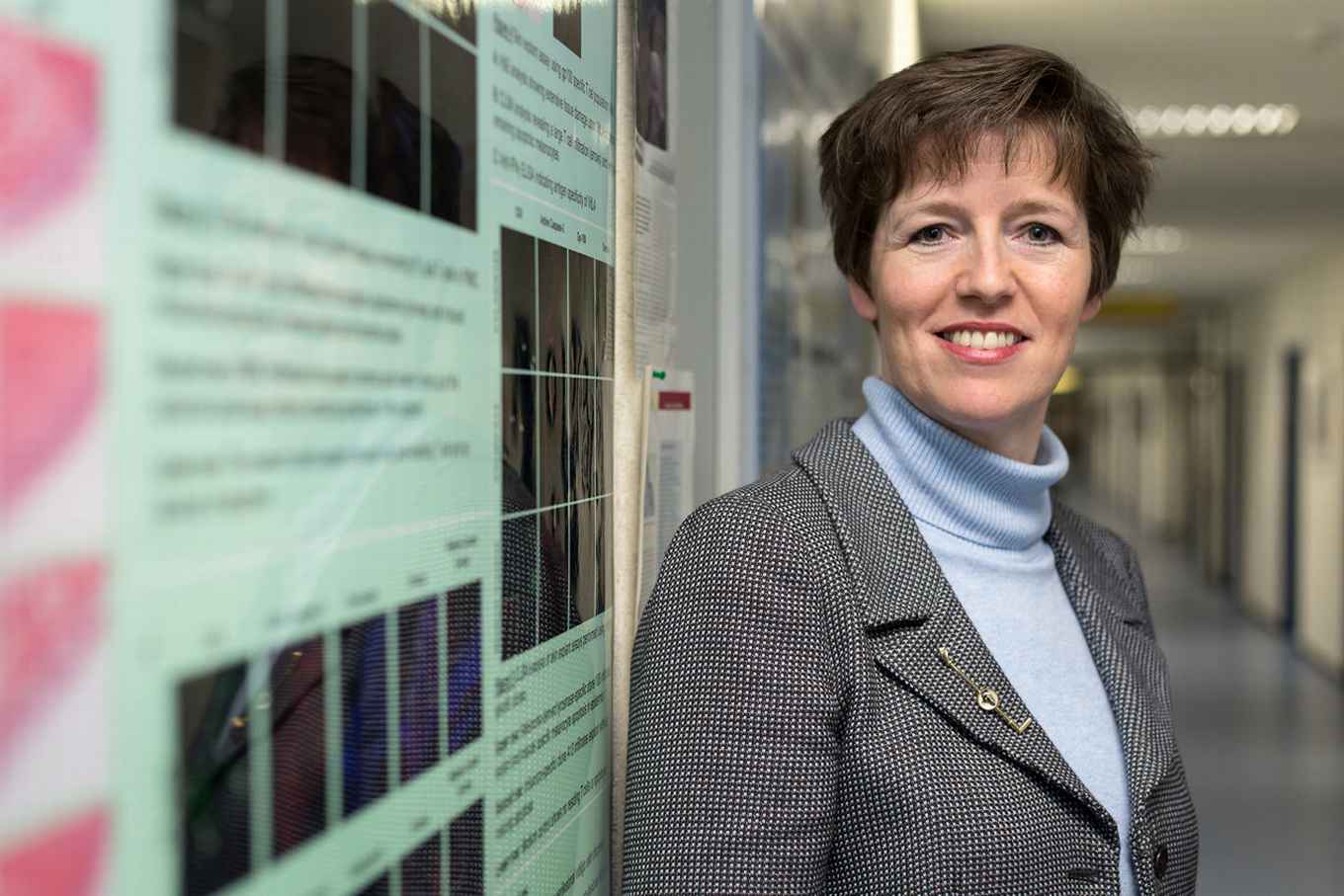Rosalie Luiten, professor of Experimental Dermatology
2 February 2015

Rosalie Luiten researches skin pigment cell disorders such as vitiligo and melanoma. Vitiligo is a relatively common condition occurring in 0.5-2% of the population, and is characterised by the development of pale skin patches. Although the disease is not life-threatening, many patients find the condition to be highly stressful and stigmatising. The problems associated with pigment cell disorders are thus not merely cosmetic and can have a major impact on patients' quality of life. As a result, demand for effective treatments is high. Luiten's research group has now established that vitiligo is an autoimmune disease that targets skin pigment cells (melanocytes). Armed with this insight, Luiten's follow-up study will now focus on the further improvement of existing treatments for vitiligo and other pigment cell disorders.
Vitiligo can also occur in patients suffering from melanoma, either spontaneously or as a result of immunotherapy or other forms of treatment. Luiten's' research has demonstrated that this is linked to a more positive prognosis. Conversely, vitiligo patients have a lower risk of developing melanoma, due to the fact that the immunity that causes vitiligo can also help the body fight off melanoma cells. Melanoma is a form of skin cancer that is caused by and related to melanocytes. As a result, the autoimmune responses targeting melanocytes in vitiligo can also target melanoma. Melanoma is the most aggressive and deadly form of skin cancer. It metastasises rapidly, responds poorly to treatment and has a bad prognosis. Luiten investigates whether the induction of vitiligo can be applied as a melanoma treatment. Her study involves the use of a skin-bleaching cream in combination with drugs that stimulate the immune system. The preclinical research results of this approach are promising. Over the coming years, Luiten will develop this treatment for application in melanoma patients.
Luiten is an associate professor and head of the AMC-UvA's Laboratory of Experimental Dermatology. She is also Principal Investigator in the AMC-UvA’s Dermatology department. Luiten has obtained various research grants, including a Vidi grant from the Netherlands Organisation for Scientific Research (NWO). She is the inventor of four patents. Luiten serves as chair of the Dutch Pigment Foundation.